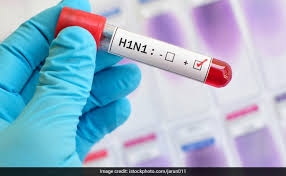20 People Die from H1N1 in Georgia
"A total of 20 cases of death caused by the H1N1 "swine flu" virus have been confirmed in a laboratory in Georgia," Amiran Gamkrelidze, Head of the National Center of Disease Control (NCDC), announced. However, the exact numbers of flu cases will be published following the winter season.
“We had the highest rate in the last week of December. The tendency is decreasing in January, though there is no sharp decline. There is a decrease in the rate of flu cases, as well as in the rate of hospitalization. Hence, at this stage, we have a relatively calm situation,” he said.
The Georgian government stated they will cover all expenses related to the cost of antiviral medicine Tamiflu and distribute it to all citizens diagnosed with influenza free of charge.
H1N1 flu is called swine flu because in the past people who caught it had had direct contact with pigs.
Nowadays, people who have it can spread it one day before they have any symptoms and as many as 7 days after they get sick. Children can be contagious for as long as 10 days.
The symptoms are much the same as seasonal flu and can include:
- Cough
- Fever
- Sore throat
- Stuffy or runny nose
- Body aches
- Headache
- Chills
- Fatigue
Like the regular flu, swine flu can lead to more serious problems including pneumonia, a lung infection, and other respiratory problems. And it can make an illness like diabetes or asthma worse.
The Ministry of Health of Georgia called on the population to visit medical facilities as soon as they notice influenza symptoms.
By Thea Morrison
Related stories:
Health Minister: Flu Cases Up But No Grounds for Panic
158 Cases of H1N1 Registered in Georgia
"Georgia is Safe" GNTA Advises Tourists on Flu Outbreak
Additional Vaccines against Swine Flu to Be Imported












